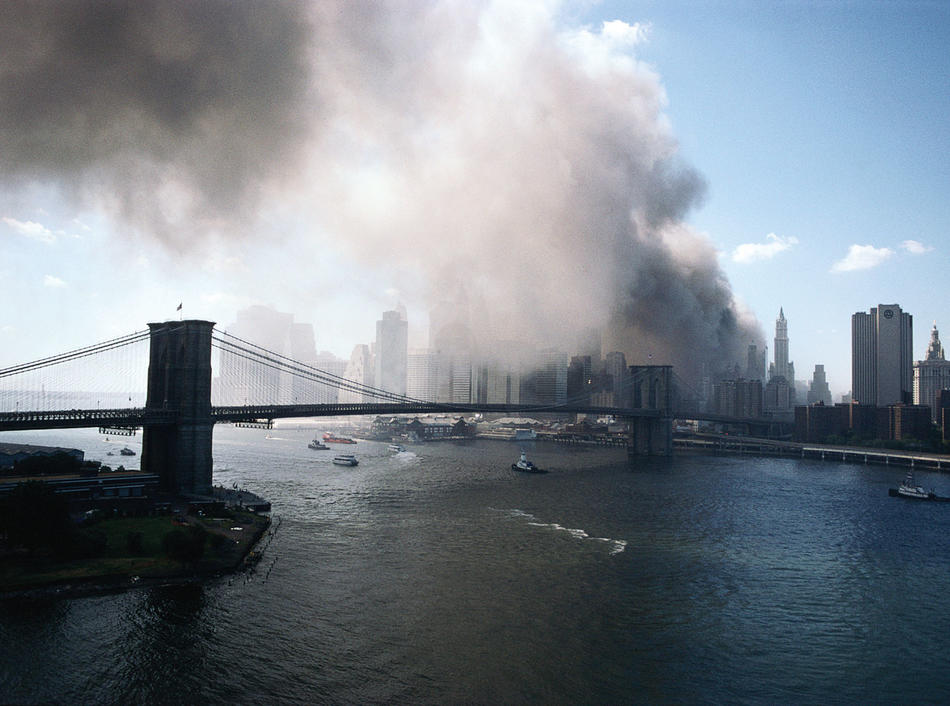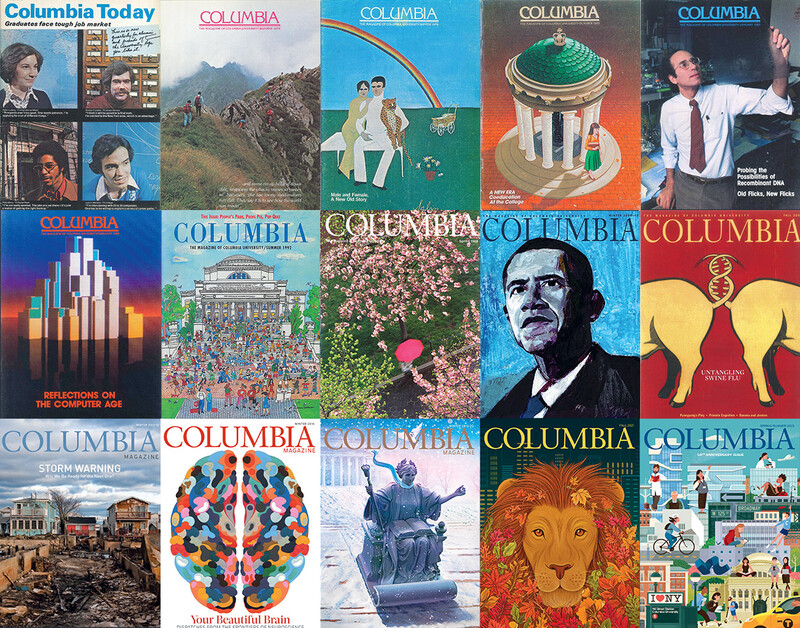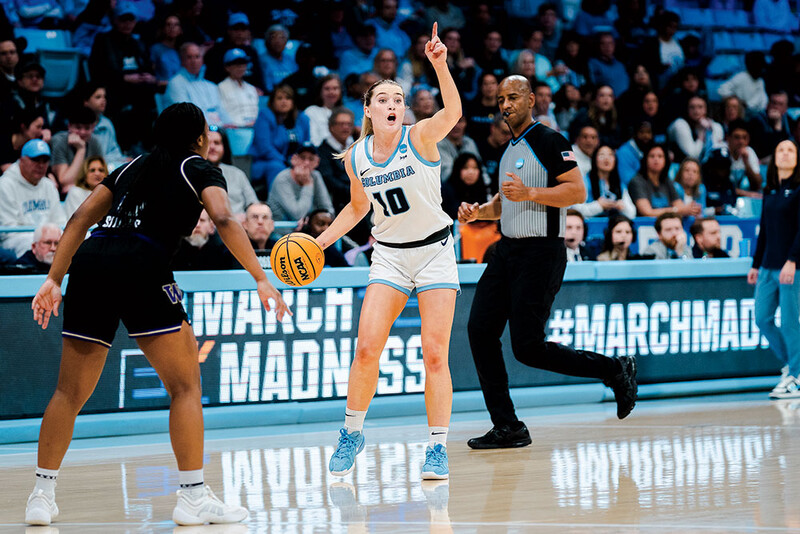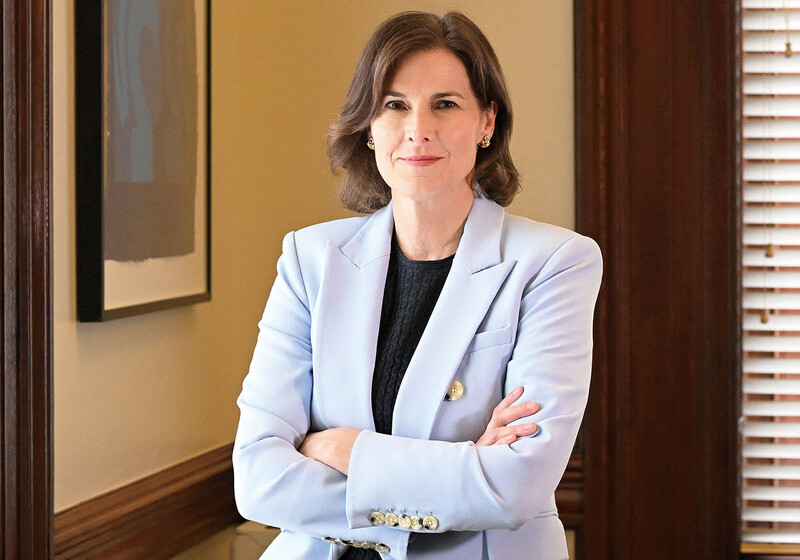This has been a very bewildering decade,” New Yorker staff writer George Packer told an overflow crowd of 200 in the Renaissance-style auditorium of Columbia’s Italian Academy.
On a gray, rainy anniversary, when memories seemed raw and talk promised comfort, Packer and a panel of writers whose fiction has touched on 9/11 — Claire Messud (The Emperor’s Children), Joseph O’Neill (Netherland), and Deborah Eisenberg (Twilight of the Superheroes) — addressed the cultural fallout of that day. By turns lively and dull, rambling and insightful, the discussion had, as Packer quipped afterward, “its own fitful trajectory.”
Andrew Delbanco, director of the Center for American Studies, and literary critic Adam Kirsch, who teaches a class at the center called “The New York Intellectuals,” introduced the panel, which was moderated by New York Times book review editor Sam Tanenhaus. The participants were attired mostly in grays and blacks, but the repartee was less muted. Tanenhaus, the bearded, bespectacled biographer of Whittaker Chambers and William F. Buckley, and Packer, with his elegant suit and polished manner, traded literary references like star students in a graduate seminar. And while no systematic cultural critique emerged, there was at least one consensus: that the impact of 9/11, notwithstanding two wars and some erosion of civil liberties, had been less profound than originally anticipated.
Packer, the author of The Assassins’ Gate: America in Iraq and Interesting Times: Writings from a Turbulent Decade, said that his first thought after seeing images of the terrorist attacks, followed quickly by concern for the victims, was “‘Maybe this will make us better.’
“But I think on the whole,” he continued, “it did not. Our institutions, which were already in a state of early decadence, continued to decline, from banking to politics to the media. We’ve been in a state of perpetual reaction for 10 years.”
Eisenberg gave voice to the resulting muddle: “It’s hard to say any one thing — immediately, the opposite springs to mind. There’s a sense of fear, shame, defeat, and hope that everything will just change somehow the next time we wake up.”
“We overestimated it,” O’Neill said of al-Qaeda and the terrorist threat. “[9/11] was obviously a gigantic fluke. Why is that so hard to say?”
But Packer disagreed. He cautioned that al-Qaeda and its ideas remain a menace, and he credited the U.S. government with preventing more terrorist attacks.
The events of 9/11 changed the relationship of New York with the rest of the country, if only temporarily, making it, said Packer, “an American city.”
“New York is an international city,” he said. “And, for a short while, New York became part of the country. Then, like so much else, that faded. What was left was, in New York, grief, and, in the rest of the country, fear and anger. I think the grief ennobled New York. The rest of the country inevitably didn’t feel it in the same way. That emotional reality set us on a different course, and I think we are back to being this strange international outpost on the coastline of the United States.”
Some of the panel’s most penetrating exchanges concerned the challenges of writing fiction in the wake of 9/11. Messud, whose novel The Emperor’s Children deals with the lives of a group of privileged young adults in New York before and after the tragedy, said, “One of the things about 9/11 was that none of us could ignore it. If you were a butterfly in the Amazon, there was some change in the air.”
At the same time, she said, “the novel that sets out to be a political novel is 99.9 percent of the time a bad novel. The novel is a human form about the human experience, and the politics will resonate outwards from the specificity of the human experience.”
Tanenhaus responded with a litany of novels that he described as “explicitly political” and “still of some consequence,” among them Lionel Trilling’s The Middle of the Journey, Arthur Koestler’s Darkness at Noon, George Orwell’s 1984, Henry James’s The Princess Casamassima, and Joseph Conrad’s The Secret Agent.
Packer, seeking some middle ground, agreed in part with Messud, saying, “You’re right: If you try to write a political novel, it will be a bad one.” But not so writing about politics, he maintained. In fact, he said, “Politics is such a central subject that it’s hard to imagine a great writer not writing about it sooner or later.” It was an intriguing, if murky, distinction.
One audience member asked whether the conspiracy theories that have grown up around the terrorist attacks — for example, that they might have been an inside job — might be “worthy creative fiction.”
Packer dissented. “We live at a time when facts are so fungible,” he said. “My inclination at this moment is to resist the free play of imagination over this event. I think what we need to work on is getting our head around certain facts.”
Messud suggested that the terrorists “have taken America’s imagination and used it against us.” Without the template of disaster films such as Independence Day, attacking skyscrapers “never would have occurred to those 19 guys,” she said, referring to the hijackers. “We put out narratives that are fictional entirely for diversion and entertainment, and they, too, have implications.”
“I think you have to give those 19 guys a little more credit,” Packer said dryly, and, 10 years on, this New York audience was able to laugh.



